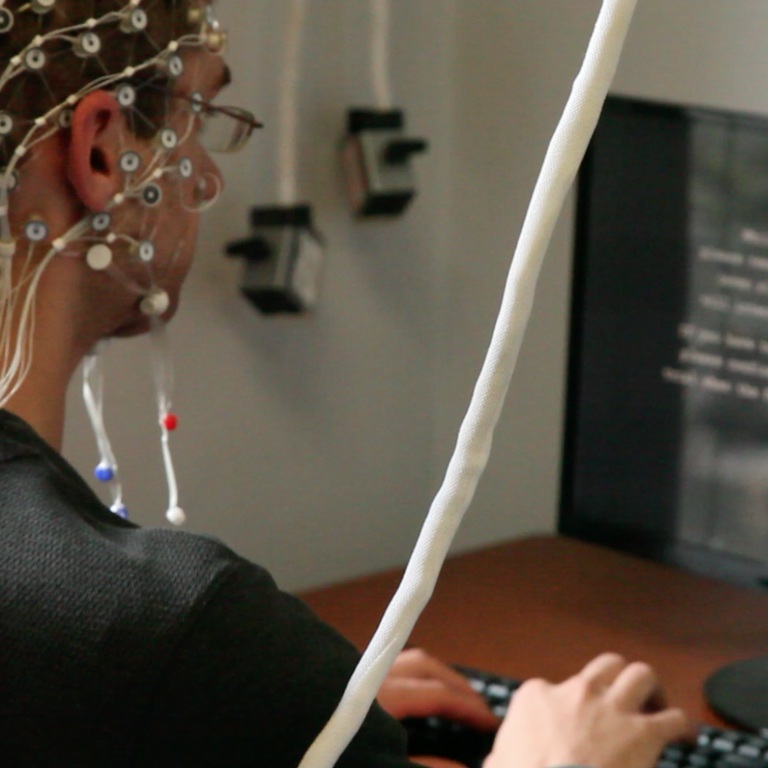Igor Grossmann, PhD is an Assistant Professor of Psychology of the University of Waterloo in Canada. His research interests concern many topics including emotion and cognition, aging, and culture. He is currently exploring processes that enable individuals to think and act wisely in the real world by using cognitive strategies that facilitate the resolution of social conflicts or by regulating emotions that undermine goals and compromise health.
In this interview, Dr. Grossmann discusses his approach to studying wisdom in varying contexts, the benefits of self-distancing in making wise decisions, and some initial ideas for how to develop a reliable and efficient way to measure wisdom in difficult life situations (i.e. a state-level instrument).
Jean: In a 2012 article titled “Boosting wisdom: Distance from the self enhances wise reasoning, attitudes, and behavior”, you reported results from two experiments on wisdom and psychological distancing. This approach differs from other wisdom research. Can you explain briefly your approach that you used?
Dr. Grossmann: Many behavioral scientists have jumped the gun by conceptualizing wisdom as a global tendency, assessing it by asking respondents to rate their agreement with abstract statements, void of any context. Yet, to understand how big concepts like wisdom, morality, or emotion impact one’s life, we need to understand both the properties of the situation as well as one’s general tendencies (which psychologists call “traits”). This is what we try to do in my laboratory. We measure both the properties of the situation as well as general tendencies, which allow us to address questions at the core of philosophers’ and public discourse about wisdom: How do we cultivate wisdom? What situations promote wiser thought and what inhibits it? Typically, we invite people to reflect on challenges they have encountered or may encounter in their lives, exploring how various social contexts or mental strategies people use impact their ability to reason wisely.
Jean: What are your findings?
Dr. Grossmann: Well, we have just started, so there is a lot to do. So far we have learned that people show different levels of wisdom when self-distancing – that is when people reflect on themselves from a third-person perspective, as compared to perspective the usual first-person perspective people use in their lives. Self-distancing can be achieved by imagining being an observer of a situation (like being a fly on the wall) by using third-person language, or by imagining being somewhere else. In each case we observed greater use of wise reasoning as compared to situations in which people look at events from a first-person perspective.
Jean: At the University of Chicago Wisdom Research Forum, there were many talks that indicated that there is a component of self-reflection that needs to occur on pathways to wisdom. How does self-reflection pair with self-distancing?
Dr. Grossmann: There are different ways to reflect on a situation. Not all types of reflection result in what philosophers would call wisdom. For instance, a common finding in clinical psychology research concerns so-called “rumination”, which is a type of self-reflection that can trigger depression. There is not much wisdom in that type of reflection. It turns out that one way to distinguish maladaptive from adaptive forms of reflection about experiences is to think about it in terms of distancing versus immersing. Are you reflecting on yourself from a third-person perspective, as a fly on the wall, or are you trying to ruminate – that is re-live the experience again, and again? The former strategy can be much more adaptive than the latter strategy. This is just one example. Generally, when my colleagues and I talk about self-distancing we do not mean that it is contradictory to the notion of reflection. Rather we view self-distancing as one of many ways of reflection, acknowledging that not all of them would ultimately result in wisdom.
Jean: How do you think wise reasoning plays into a situation where there is a social dilemma?
Dr. Grossmann: For many scholars the idea of wisdom is linked with the concern for “the common good,” which would more often mean the concern for what's best for the group one is a member of. I would say that wise reasoning helps you to contextualize the events you are faced with, allowing you to consider the perspectives that you may not favor initially, or consider the potentially undesirable outcomes.
Jean: In “Aging and wisdom: Culture matters” you discuss differences in concepts of wisdom across Japanese and American culture. The number of psychological and sociological researchers that focus on wisdom in particular is a small. Do you think the cultural discussion has not been thoroughly addressed because it is a nascent field?
Dr. Grossmann: That is perfectly possible. We need more people interested in the topic, who do not share a Western notion of wisdom. In addition, we need to provide these people with tools so we can measure wisdom in an accessible way and in a way that would be agreed on in a given group. It's just not the case right now. Most of the published behavioral research on wisdom has been conducted in the German-speaking countries and in North-America. Ironically, even though many wisdom researchers have lived abroad, there is not much work on how culture influences wisdom. For instance, there was not much discussion on how the German concept of wisdom is different from the one in North America. There is also no work on how Germans differ in their wisdom from North Americans. And beyond these cultural groups, little is known about people’s wisdom in Africa, South East Asia or regions in Latin America.
Jean: You currently have a wise reasoning scale. Can you tell me a bit about it?
Dr. Grossmann: We are developing a new way of measuring wisdom, and hopefully we'll be able to make it accessible to the public by the beginning of next year. To develop this instrument, we applied state-of-the-art insights from social-personality psychology and survey methodology, which have not been much explored in the gerontological or human development areas of wisdom research so far. Many existing wisdom scales ask people questions that are very difficult to answer in an accurate way, in part because we want to show our best side to others. For instance, if you are asked: “In general, how reflective are you?” you may be tempted to say “I'm very reflective. I reflect on myself all the time.” If you are asked “In general, how humble are you?” you may be tempted to say “I am very humble, much more than people around me.” Is such a person wise? Probably not. If somebody is scoring high on such statements, that person may ironically lack one of the key ingredients of wisdom – humility. There is a great deal of research showing that people have a hard time answering such questions correctly, not only because many of us think that we are wonderful human beings. Even if we are truly humble, we may simply not have enough context to evaluate ourselves “in general.”
How does one ask a question so that one can avoid such problems? First, it is important to consider the context, to phrase the questions in the context of specific situations. If you ask people to reflect on a question in a context of a particular experience, they may have a better chance to report what they actually do. In our current work, we attempt to use these insights for development of an efficient, reliable, and valid instrument. Our preliminary results are very promising. I invite all interested scholars to contact me, in case they are interested in joining our efforts.
Jean: From the current ways in which we as psychologists measure wisdom, we can use a self-report measure with the typical issues like report bias or we can use performance measures that are somewhat daunting in terms of being time-consuming. Where does your instrument fall in that range?
Dr. Grossmann: In my lab I typically explore what some wisdom scholars call performance. I am not sure it is the right word, as it sounds like wisdom would be easily quantifiable in units, which is not the case. The new instrument would be equivalent of a performance measure, without the need for time-consuming qualitative content-analysis. Therefore, it will be much more efficient than existing performance measures. It is a hybrid – a self-report “performance” measure, a compromise between quality and efficiency. I anticipate it will have a great number of limitations, too. For instance, sometimes people don't recall how they acted in a specific situation. Moreover, this method will not be able to tap into any implicit process. Of course, neither will we be able to tap into them with any other existing global self-report measures or with performance measures. With regard to existing performance measures, all of them employ content analytic procedures and thus rely on people’s ability to verbalize their train of thoughts either in narrative or in an oral form.
Jean: In the general discussion of the “Exploring Solomon’s paradox” paper, you note that people are wiser when reasoning about problems of others than when reasoning about their own. How might this concept be applicable in daily life?
Dr. Grossmann: When it comes to your personal problems, it may be useful to self-distance: Put yourself in a good friend’s shoes, look back at your problem, and try to give yourself advice on the problem as a friend might. What would your friend say and do? That's one strategy. Also, we found that if people start talking about their dilemma in the third person (using pronouns he/she), they are more likely to reason wisely. In addition to these self-distancing strategies, we can also think about modifying our environment. For instance, one can plan one’s environment in a way that would make self-centered concerns less and wise reasoning more likely.

Igor Grossman, Ph.D.
Assistant Professor of Psychology, University of Waterloo



